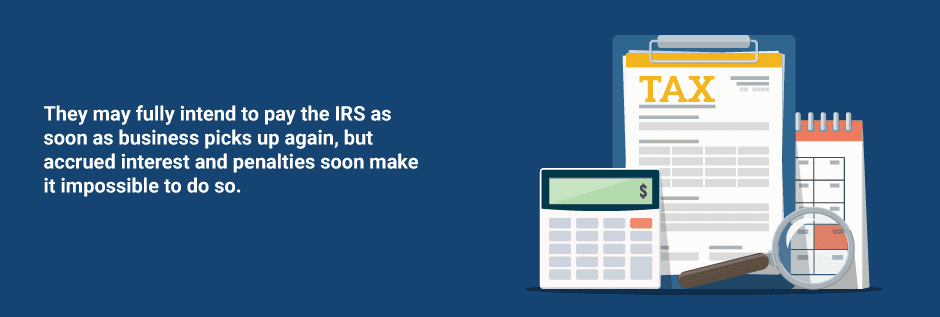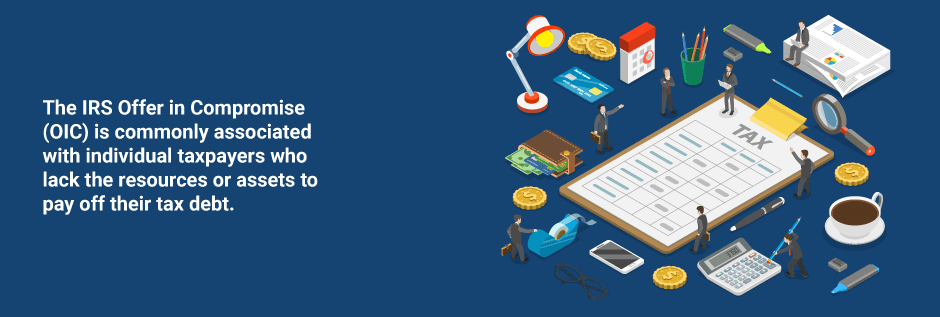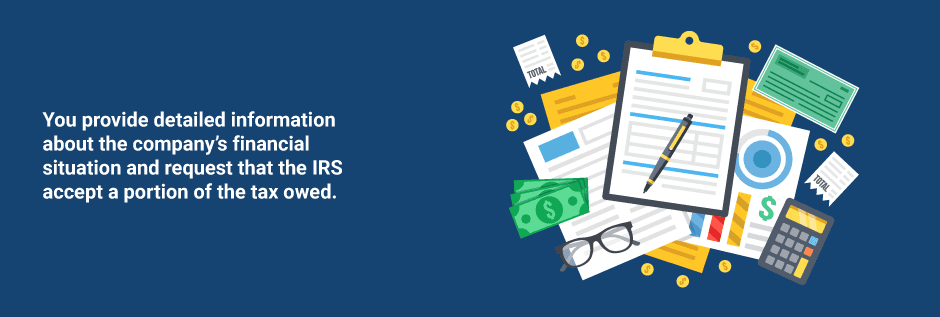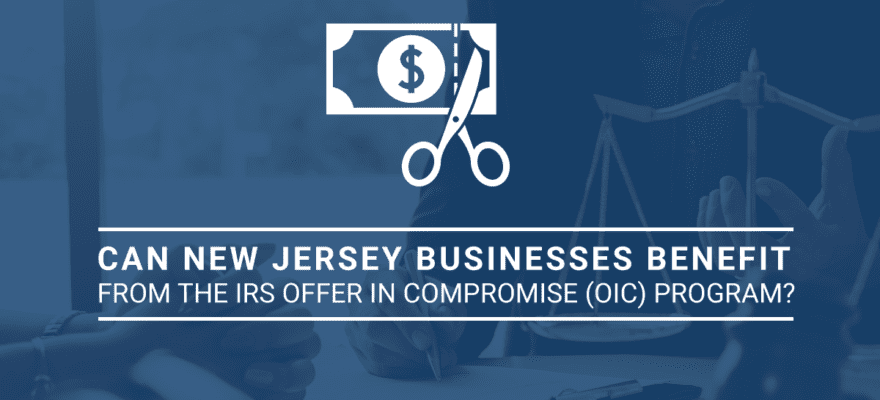If your company is struggling with tax debt, the good news is that it is possible to make an arrangement with the IRS to reduce what you owe and establish a sustainable repayment plan, using the IRS Offer in Compromise (OIC) program.
When economic times are tough, business owners can reach the point where they have to decide whether they will pay their employees, suppliers, and utility bills or try to make a dent in their growing tax bill. They may fully intend to pay the IRS as soon as business picks up again, but accrued interest and penalties make it impossible to do so.

To compound the difficulties of a struggling business owner, the consequences of failing to pay their tax bill can be harsh. The IRS will assess a liability that includes interest and penalties that can eventually surpass the original tax amount due. It also has methods of collecting overdue taxes that can spell the end of a business.
The IRS Offer in Compromise (OIC) Program Explained
The IRS Offer in Compromise (OIC) program is commonly associated with individual taxpayers who lack the resources or assets to pay off their tax debt. The truth is that the OIC is also available for New Jersey businesses.

To qualify, your business must meet the following criteria:
- It must be current in filing its tax returns. Any OICs from a business that has not filed all required returns will be sent back and any initial deposit sent with the offer will be applied toward the tax debt.
- There must be no trust fund taxes (e.g., Medicare or Social Security taxes) that need to be assessed against a responsible person.
In an effort to assist struggling U.S. businesses and get them back on track, the IRS has relaxed its rules for commercial OICs. (At one time, your company had to be compliant with all its tax obligations for at least two quarters and be current with its federal tax payments in the present quarter before it was eligible for an in-business OIC.) The presumption is that keeping businesses open and people employed is better for individuals and the economy.
Applying for an Offer in Compromise (OIC)
Requesting an offer in compromise for your business is a lengthy process in which you fill out IRS Form 433-B (OIC), Collection Information Statement for Businesses. You provide detailed information about the company’s financial situation and request that the IRS accept a portion of the tax owed.

There are three grounds under which the IRS will accept an OIC:
- Doubt as to collectability: The amount you offer equals or exceeds the reasonable collection potential (how much the IRS would realize if it pursued collection efforts).
- Doubt as to liability: There is legitimate doubt that you owe the amount demanded.
- Effective tax administration: Collecting the tax you owe would create an economic hardship or there are extraordinary circumstances involving public policy or equity.
When deciding whether to accept your company’s OIC and in what amount, the IRS will examine its equity in terms of income, assets, and liabilities. However, there are certain aspects of these valuations that can have a significant effect on how the IRS regards your offer.
For example:
- Accounts receivable may be eliminated from the reasonable collection potential if it is seen as necessary for the production of income. Any accounts that are over 90 days past due could also be assessed at a discount.
- Assets that generate income may be excluded when the IRS does its asset calculator. If your company has $110,000 worth of equity in an asset that nets $10,000 per month, this income will be included in its reasonable collection potential but the equity would not.
If the IRS believes that it is unlikely to collect more in the future — so that accepting less now is in its best interest — it will likely accept your offer in compromise. Its primary goal at this point is to collect as much as possible while minimizing cost to the government.

Contact an Experienced Tax Attorney
Valuing business assets for the purposes of submitting an OIC can be complicated, and in general, a business OIC is more difficult to present than one for an individual taxpayer. To ensure that your offer has the best chance of being accepted, you should work with a law firm that specializes in tax law.
If your New Jersey business owes significant back taxes, contact Paladini Law today by filling out our online form or calling (201) 381-4472 to discuss your situation. Attorney Brad Paladini is an experienced tax attorney who finds practical solutions for serious tax liabilities and will give you expert and personalized representation as you pursue an offer in compromise with the IRS for your business.



